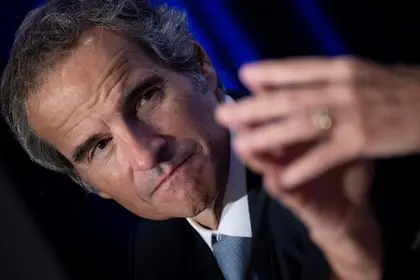The UN’s nuclear watchdog will this week carry out an “independent verification” of Russian allegations concerning the production of so-called dirty bombs at two sites in Ukraine, it said on Thursday, Oct 27.
Russia has accused Ukraine of preparing to use such a weapon against Moscow’s troops, but Kyiv suspects Russia might itself use a dirty bomb in a “false flag” attack, possibly to justify use of conventional nuclear weapons by Moscow as it finds itself on the back foot in eastern and southern Ukraine.
JOIN US ON TELEGRAM
Follow our coverage of the war on the @Kyivpost_official.
International Atomic Energy Agency (IAEA) head Rafael Grossi said: “IAEA inspectors will conduct independent verification at these locations”.
He said they would work “to detect any diversion of nuclear material under safeguards, any undeclared production or processing of nuclear material at the two locations and assure that there are no undeclared nuclear material and activities”.
The agency said it had inspected “one of the two locations a month ago and no undeclared nuclear activities or materials were found there.”
A dirty bomb is a conventional bomb laced with radioactive, biological or chemical materials which are spread in an explosion.
Earlier on Thursday Russian President Vladimir Putin called for the IAEA to inspect Ukraine’s nuclear sites “as fast as possible”.
After speaking behind closed doors to the UN Security Council in New York, Grossi told reporters the IAEA’s conclusions would come in “days, very fast”.

N. Korean Troops Massed in Russia to Enter Ukraine War ’Soon’: Pentagon Chief
“Normally our inspections are looking for nuclear material, direct nuclear material,” he said, adding that the IAEA would need to perform “different kinds of work” this time.
Russian UN envoy Vassily Nebenzia said “We (told) director general Grossi… that he should be vigilant because these facilities are not the only ones where that can be produced.”
“We said we would be happy to be mistaken,” Nebenzia added.
You can also highlight the text and press Ctrl + Enter






